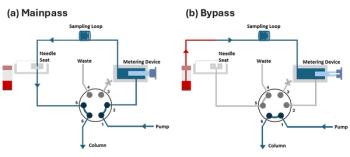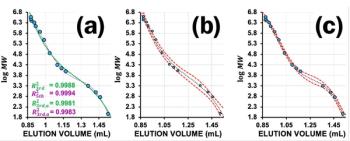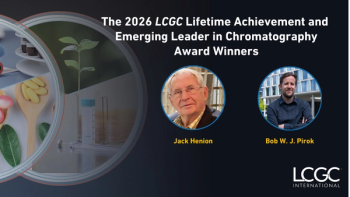
LC-MS in Bioanalytical and Biomedical Applications
Di Jiang of the University of Connecticut will kick off this session with a talk on direct liquid chromatography–tandem mass spectrometry (LC–MS/MS) detection of guanine oxidations in a tumor suppression gene.
Session 1790
Room 208C
8:30-11:25 a.m.
Di Jiang of the University of Connecticut will kick off this session with a talk on direct liquid chromatography–tandem mass spectrometry (LC–MS/MS) detection of guanine oxidations in a tumor suppression gene. Next, Ke Li of Missouri University of Science and Technology will discuss the characterization of antibody-drug conjugates in plasma by high resolution time of flight MS. Fangxu Sun of Georgia Tech University will then give a presentation on the analysis of secreted N-glycoproteins in human cells using click chemistry–based enrichment and MS. Zhou Ting of South China University of Technology will then discuss the quantification of inflammation-related lipids in ischemic stroke rates using background subtracting calibration curves with LC–MS/MS.
After the break, Alec C. Valenta of the University of Michigan will present on in vivo neurochemical monitoring using LC–MS, followed by a talk from Yadi Wang of the University of Texas at Arlington on a rapid, sensitive LC–MS/MS method for the quantitation of D-amino acids in mouse brain tissue. Next, Casey Burton of the Phelps County Regional Medical Center in Missouri will present an LC–MS/MS method for the simultaneous determination of 10 putative biomarkers for traumatic brain injury in urine.
Yiyang Zhou of Purdue University will close the session with a talk on improving HPLC resolution and increasing MS compatibility with a novel polymerized bonded phase on silica. The phase was designed to minimize or avoid the need for TFA while also increasing chromatographic resolution compared with conventional alkylsilane bonded phases.
Newsletter
Join the global community of analytical scientists who trust LCGC for insights on the latest techniques, trends, and expert solutions in chromatography.




